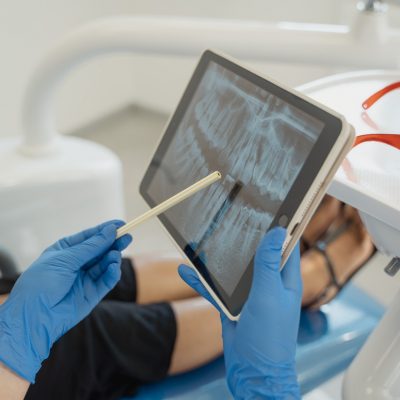A toothache is an uncomfortable feeling in or around a tooth. It’s usually a sign of a problem with your tooth or gums. However, referred pain can often result in toothaches. This indicates that the source of your pain lies somewhere else in your body, so it must never be neglected.
If tooth decay is not addressed, it can spread and cause more pain in the tooth. Although most situations of tooth pain are not life-threatening, there are conditions in which a dental professional must be visited right away. Discover more about the typical causes of toothache and natural remedies for easing tooth pain in this post.
Causes of Dental Pain
Dental pain can be triggered by numerous issues, ranging from minor to severe. Among the most common causes of tooth pain are the following:
Tooth Decay
Tooth decay, also known as dental cavities, is a common dental illness caused by the breakdown of tooth enamel because of acid produced by bacteria in the mouth. When the enamel on a tooth is affected, it can trigger discomfort and sensitivity. A tooth pain accompanied by swelling or fever may indicate an infection calling for immediate treatment.
Regularly practicing great oral hygiene is essential to prevent tooth decay. Nevertheless, if you are experiencing this dental emergency, seeking urgent treatment from a dentist or emergency dental facility is important.
Gum Disease
Also known as periodontal illness, it is a common problem that affects the gums and the bone that sustains the teeth. It is triggered by bacteria that develop on the teeth and gums, forming plaque. Gingivitis can progress to periodontitis if left untreated, a more serious periodontal illness that can harm the bone and tissues that sustain the teeth, possibly resulting in tooth loss.
Bruxism
Bruxism is a condition that causes a person to grind, clench, or gnash their teeth. It can happen during the day but is more commonly associated with night-time sleep habits. Different factors, including stress, anxiety, sleep disorders, and dental problems, can cause it.
TMJ Disorders
This problem affects the temporomandibular joint, which connects the jawbone to the skull. The disorder can cause discomfort, tightness, and popping or clicking sounds in the jaw joint when opening and closing the mouth. If you’re experiencing TMJ problem signs, consulting a dentist for a precise diagnosis and proper treatment plan is necessary. Search online to find a TMJ dentist in Edmonton that can help you.
Dental Pain Treatments
You can try many tooth pain remedies at home to ease discomfort until you can visit a dentist. Below are some examples:
- Pain relief medication: Over-the-counter medication such as ibuprofen or acetaminophen can effectively relieve oral discomfort.
- Cold compress: A cold compress can properly soothe oral pain, especially if the pain is due to inflammation or swelling. A cold compress eases discomfort by helping to numb the area and lessen swelling.
- Clove oil: Clove oil has a natural anesthetic that can help alleviate toothache. You must gently apply clove oil on a cotton ball before being placed on the affected tooth.
- Dental treatment: There is pain that cannot be managed with medications, and depending on the cause of the tooth pain, you may require treatment. This could include a filling, root canal, or extraction of the affected tooth. You should see a dentist for accurate diagnosis and treatment of oral pain.
Tooth pain can be a sign of a severe problem, and early detection can help avoid more major issues from developing. You can avoid this issue by exercising great oral hygiene, which includes frequent brushing, flossing, and using mouthwash. If you experience it, consult your dentist immediately.
Bottom Line
Experiencing tooth pain can be very uncomfortable. Though numerous home remedies can help an individual feel much better and get some sleep, they are not lasting solutions. Seeing your family dentist is the best way to determine the cause of your dental pain. X-rays and a comprehensive exam will help her decide on a suitable treatment to alleviate discomfort.




